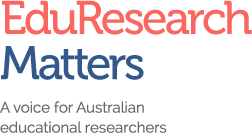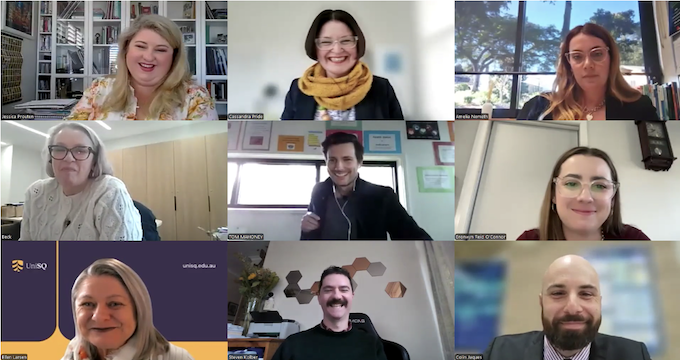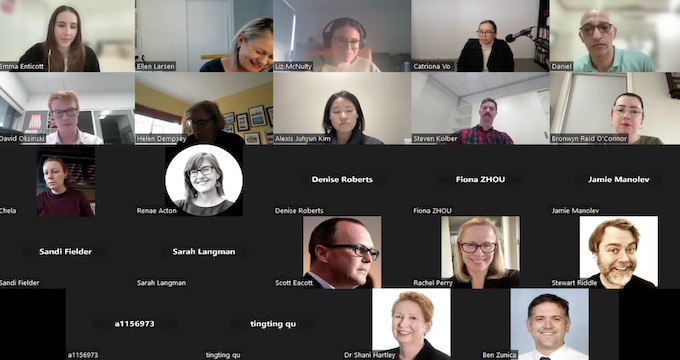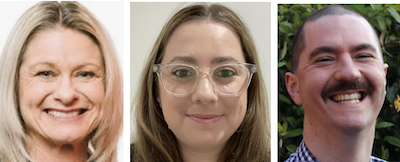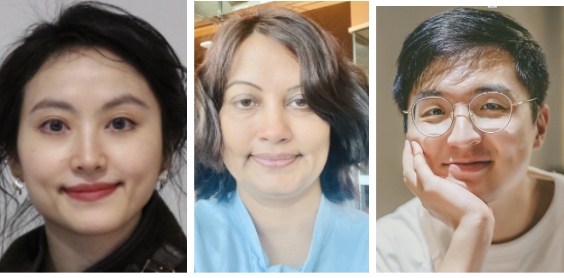The Australian Association of Research in Education (AARE) Teachers’ Work and Lives Special Interest Group launched the second in a Teachers’ Voice Panel Series last year. It provides time and space for educational researchers to listen to teachers about what research matters to them. In this follow-up panel, six experienced teachers from government and independent schools across Queensland, Victoria and New South Wales came together online to share their ideas about research and their work. What emerged amid this discussion was a range of useful suggestions for researchers looking to engage with teachers and schools through their work.
Academics are constantly being asked to engage with the public – but that can be tough. It’s a tough struggle trying to publish in top-tier journals and balance that with external engagement, translational research, engaging with real people at the coal face.
We work on disseminating research through various avenues with the hopes that it reaches teachers – and contributes to change. But does it?
The road blocks between teachers and research
When speaking to the panel about how teachers connected with research, many roadblocks for teachers were raised. It almost goes without saying that many of the constraints and challenges faced by teachers in accessing current research are not within the locus of control for researchers, with time being the core challenge.
Amelia Nemeth notes that “I feel a challenge for classroom teachers is the time constraints and the demands of teaching leave little room for them to authentically engage with research.”
But beyond that, the panel raised that a major challenge they faced was when publications were not available as open-access.
Where Jessica Prouten emphasised that “Everything is hidden behind paywalls”.
Whilst Tom Mahoney also noted that “More research going open-access is really helping, so more of that!”
It was oftentimes presentations that made engaging with research overly onerous for teachers, with books providing a form of practical synthesis proposed as a clear alternative to the traditional research journal article.
To speak to teachers, synthesise the research
For Rebecca Russell-Saunders,“To sit down and read through a 23-page journal article, which is full of academic speak, can be daunting, I’d prefer to read a book written by someone whose synthesised the research applied it in the classroom – providing me with scenarios of how teachers have done it, so I can imagine how it would work in my setting.”
For Colin Jaques, “A book that summarises all of the research is quite useful – so I can bring those ‘nuggets of gold’ into faculty meetings, and we can say ‘what do we want to try’, and then come back and evaluate if that worked or not.”
Some of the teacher panel proposed that curation and synthesis were important, Cassandra Pride said that “It can be hard to know where to begin, so having a curation point would be lovely”
Amelia Nemeth finds that “[Research tends to be] …too theoretical and too disconnected from their practice… some dot-point summaries that they can put straight into their practice.”
Experienced teachers from the panel called for the importance of research that has clearly articulated implications for practice, and tangible directions for action.
Methodologies that respect teachers’ time
The panel also shared their insights regarding ideal methodologies and approaches that consider and value teachers time. With a focus on minimising surveys, many preferred interviews where possible.
Tom Mahoney believes, “You can never go wrong with just an interview, I’m more than happy to ramble on, and I think most teachers are like that…. Your talking is your thinking. But, I don’t like surveys, you know, Likert scales – I find them really limited and restrictive.”
Cassandra Pride concurred, “I agree, all of the interview research I’ve taken part in has helped me build connections. It’s exciting to speak beyond our own setting and system!”
Rebecca Russell-Saunders preference is for “Maybe a short screening survey at the start, 7 minutes would be ideal.”
A counterpoint was provided for the utility and convenience of completing surveys online. Such as Jessica Prouten, who said that, “I prefer surveys because I can do it at home, in the jammies, watching MasterChef, compared to an interview where I have to be dressed nicely and peopling with people, rather than being able to do things at a time convenient for me.”
The bridging work of sharing the work beyond journals
As researchers know, the rise of altmetrics and a focus on impact has not always brought about the changes we may have hoped for; the consequence being that it can be challenging for teachers to know which researchers to turn to. A positive example of making research visible was provided as an exemplar that other researchers might explore.
Tom Mahoney suggests that, “Stephanie Westcott and her work on misogyny in schools has been really powerful, just knowing that’s ‘her thing’ – meant that when I had someone contact me about their experiences of this I could reach out and point them in the right direction.”
The ongoing challenge of journals being behind paywalls was one thing, but considerations of how researchers and Universities might do the work of sharing findings, perhaps at the organisational level was also highlighted. The use of social media for this purpose was proposed.
Jessica Prouten notes that, “It would be great if Universities could be doing more about journal accessibility, I loved the #edureading online reading group making journal articles accessible to us, but I’ve emailed academics to access articles, and no one ever responded to me – and that’s kind of sad.” Continuing she notes that, “Guidance from Universities around how they [teachers] could start journal article reading groups within their own schools… Is there a space for sharing research with teachers via social media?”
Small steps
A major trend within the discussion was around small steps that researchers could do to make their research work more classroom and school-friendly.
Cassandra Pride wondered that, “Wouldn’t it be great if education research required a precise, a one-pager, of how this research relates to school – to avoid reinterpretation, an infographic or something similar would be amazing.”
Amelia Nemeth suggests that, “Practical summaries, people who want a quick read to put things into practice”.
Tom Mahoney continues that, “Twitter was a really useful thing, a really good place to see that research distilled into short snippets – I made many connections there. LinkedIn is a great place to reach out to researchers.”
To conclude, the teachers on the panel, not surprisingly, enjoyed the opportunity to join in the discussion and being put into the empowering position of being asked for their input.
Rebecca Russell-Saunders concluded that, “Teachers feel that researchers aren’t asking us, what would you like?”
How might the work of researchers be shifted to meet the teaching profession and schools where they are?
More reading and listening
For AARE members . . . .Please also catch up on the recordings of this series of webinars available here: https://www.aare.edu.au/sigs/teachers-work-and-lives/
We would like to acknowledge the members of the panel (from top left to bottom right, as pictured): Jessica Prouten, Cassandra Pride, Amelia Nemeth, Rebecca Russell-Saunders, Tom Mahoney, Colin Jaques for their candour and thoughtful responses and their willingness to contribute to the research community.

Steven Kolber is a lecturer at Victoria University and a PhD candidate at Flinders University. He was a proud former public-school teacher for 12 years, being named a top 50 finalist in the Varkey Foundation’s Global Teacher Prize. He is interested in teacher empowerment, improving outcomes for teachers and exploring teachers’ use of social media.
Bronwyn Reid O’Connor is a mathematics educator and researcher in the Sydney School of Education and Social Work at the University of Sydney. Drawing on her experience as head of mathematics, Bronwyn teaches in the areas of secondary mathematics education at the undergraduate and graduate levels. Her research focuses on supporting students’ motivation, engagement, and learning in mathematics as well as secondary mathematics teacher education. Her work focuses on addressing the research-practice nexus, and she serves as Editor of the Australian Mathematics Education Journal to continue disseminating high-quality research to practitioners.
Ellen Larsen is a senior lecturer in the School of Education at the University of Southern Queensland (UniSQ). Ellen is a member of the Australian Association for Research in Education [AARE] executive and a convenor of the national AARE Teachers’ Work and Lives Special Interest Group. Ellen’s areas of research work include teacher professional learning, early career teachers, mentoring and induction, teacher identity, and education policy. She is on Twitter @DrEllenLarsen1.

